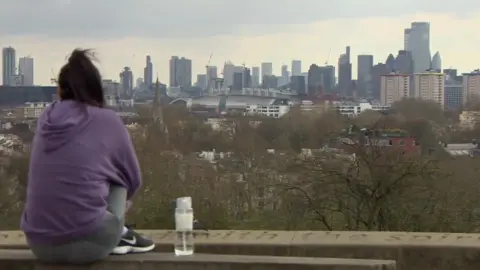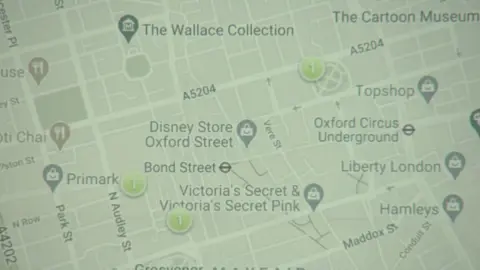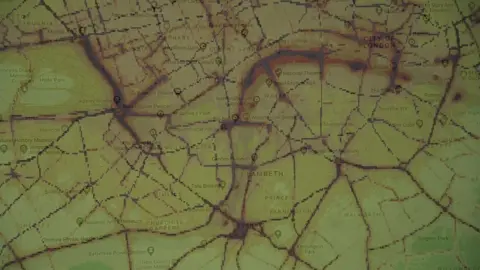Coronavirus: Pollution levels fall 'dramatically'

 BBC
BBCLondon views, once covered in smog, are clearer. Certainly at night you can see far more stars and satellites and asthma sufferers say they are breathing more easily.
Air pollution in London has fallen so dramatically since the capital's Covid-19 lockdown, monitors used to measure toxicity are alerting the data collectors to possible faults with the readings.
As a result of the coronavirus restrictions on movement, average air pollution levels have fallen to their lowest since recordings began in 2000, according to the London Air Quality Network.
The monitors record levels of nitrogen dioxide, sulphur dioxide, particulates and ozone levels.

The pollution monitor measurements range from 1 to 10; low to very high.
Since the lockdown, only low levels of pollution have been detected across the capital, so much so, the machines have registered this as a possible fault.
But Simon Birkett of Clean Air for London said despite the low recordings, toxicity remains.
"On Brompton Road the average levels are now down to the WHO (World Health Organisation) legal limit so while that's half what it was 10 years ago, it's taking these huge exceptional restrictions to get it down to safe levels," he added.
He added the reduction in traffic and construction were behind the lower levels.
Scientists are studying this data carefully and think it could shape the advice they give to policy makers.

Dr Benjamin Barratt of King's College London said: "We have been given a natural experiment that we never ever expected to have to drastically those levels of transport emissions.
He added the lockdown would allow them to study the atmosphere and then give feedback to policy makers.
"We have had huge behavioural changes forced upon us in this situation. We're having to adapt and behave slightly differently particularly how we work a lot more remotely.
"That should make us realise we don't have to take the car to work, we don't have to travel in to the office every single day.
"I think it could be one positive that comes out of this and re-evaluate how we do things," he added.

- EASY STEPS: How to keep safe
- A SIMPLE GUIDE: What are the symptoms?
- HEALTH MYTHS: The fake advice you should ignore
- MAPS AND CHARTS: Visual guide to the outbreak
- VIDEO: The 20-second hand wash

